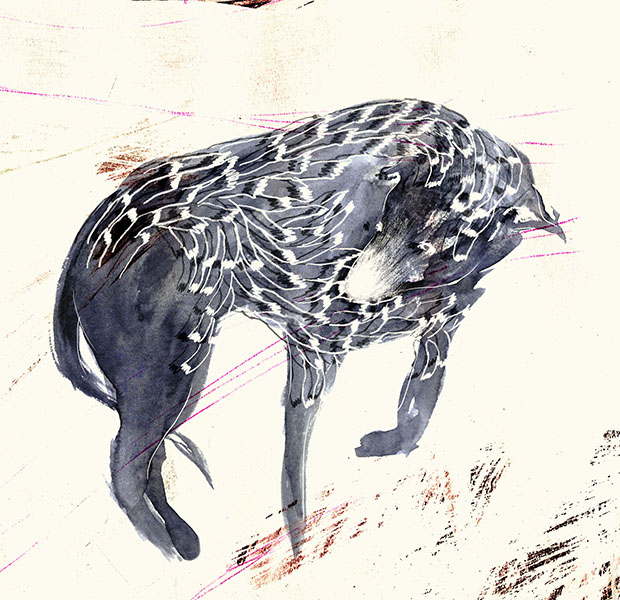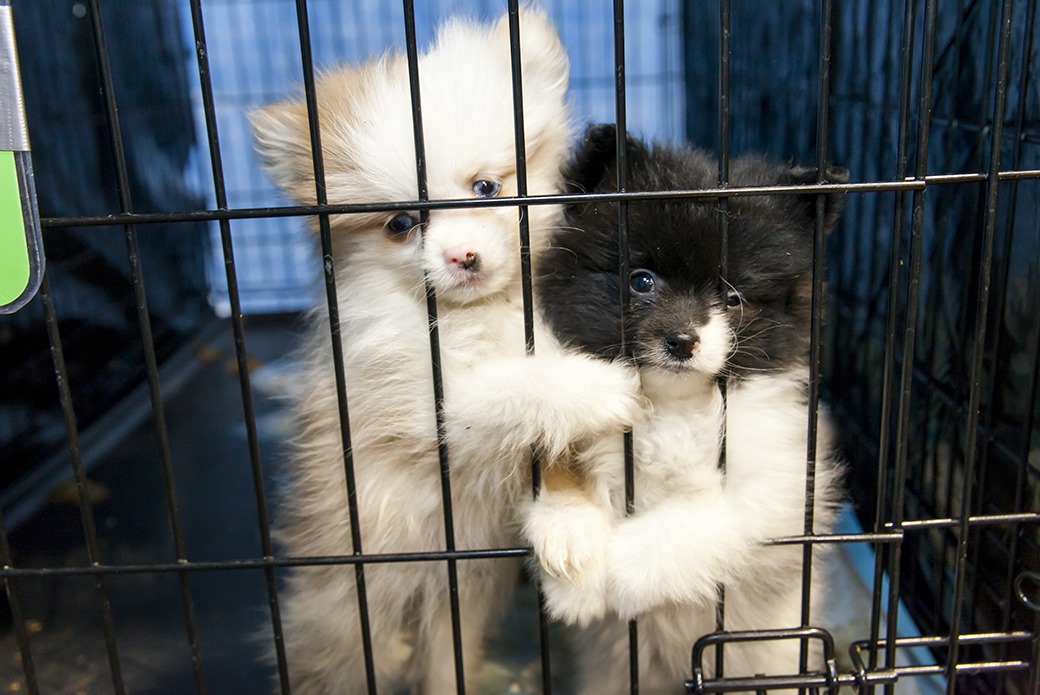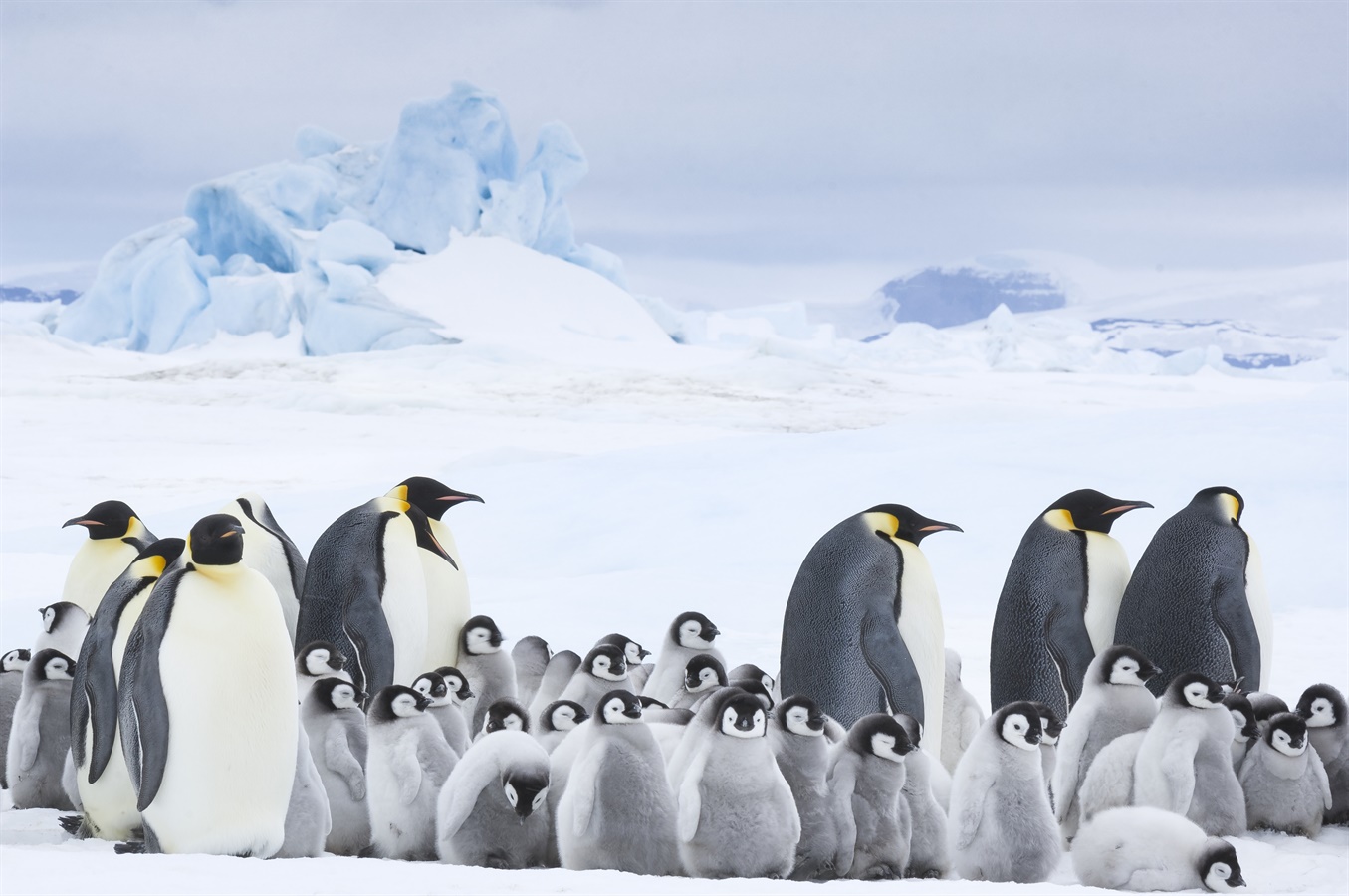Words and illustration by Vita Sleigh
Content warning for discussion of misogynistic actions and behaviors in the activist community.
At my first few Animal Save Vigils, I couldn’t help but feel an extra lurch of sickness (to add to the pungent smell of death and terrified screaming from inside) to see that the on-site vet for that slaughterhouse was female. How can she be supporting this? How is this sisterhood? I thought. I somehow expected better of her. My feelings of shock to see women involved in slaughter were matched (and raised) by other activists – gendered insults were leveled at female workers including the “bitch” who worked at reception.
This reaction to women’s exploitation of animals is common, and it is something I have been unpacking. It clicked and made sense when I read Brutal by Brian Luke. “Feminine gender roles typically include an expectation of responsiveness to the needs of others, while masculine gender roles often include an expectation of a willingness to override or disregard [their] sympathies for others”. In other words, we accept, or expect, cruelty from men, while holding women to much higher moral standards. From women we expect nurture, sensitivity and (motherly) care. Seeing a woman driving a truck of chickens to their deaths challenges something fundamental to our constructions of femininity and what it is to be a woman.
In his section about the masculine-dominated world of vivisection, that animal activists respond to female vivisectors with “an extra measure of repugnance, as if a male vivisector’s callousness is unfortunate but expected, whereas a female’s is both lamentable and deviant.”
We also see this attitude in campaigns against “fur” (the hair of other animals). While “fur” is, of course, disgustingly unnecessary and cruel, I have long since found the disproportionate focus of campaigns of organisations and individuals on this issue confusing (without even broaching the murky world of PETA’s sexist ads about the issue). Are the procedures of keeping animals for “fur” – squalid conditions, violently taking their lives and turning their carcasses into products – really so different from the similarly squalid conditions and murder to which we subject farmed animals for “meat” and their skins worn as “leather”? I would argue not. (And, while we’re here – I do not subscribe to the argument that “fur” is more futile or wasteful than “leather” because “at least farmed animals are killed and eaten”. To argue this point is to suggest that the individuals’ death is somehow better if their mutilated body is eventually consumed or used. It is also to accept the view that animal bodies are products, and not violated, murdered corpses.)
I worry that the attitude to “fur” in the animal rights world is in a similar vein to the way the Yulin Dogmeat Festival and the consumption of dogmeat is, with racist overtones, disproportionately criticised by those in the West. Not to mention the even more overt racism and speciesism exhibited by those who pay for the same or similar to happen to pigs, chickens and cows. We are not being careful enough to prevent other prejudices, be they sexism or racism or any other -ism, from seeping in to animal liberation.
Notwithstanding the fact that traditionally men have purchased fur for women to wear as a symbol of the man’s wealth and status (and even today, in this postfeminist age, men continue to be the primary consumer purchasers of fur), fur is seen as a woman’s product…Fur and cosmetics have both been used to help implement a particular construction of gender roles, one in which women are held to be naturally and ceaselessly engaged in decorating and adorning their bodies to attract the attention of men
– Brian Luke, Brutal
This is a culture that insists women’s only talent is to be endlessly beautiful and glamorous in order to attract the attention of the (cis, straight) male gaze; and then berates them in the same breath as being vain and shallow.
It is true that, by grace of meat eaters’ own hypocrisy, it is easier for many people to feel angry at the issue of “fur;” unlike animal agriculture, they are far enough away from financially supporting the industry to be feel able to criticise it. However, that it has more of a public backing may also have to do with gender. “We have not seen men in leather jackets being accosted, verbally haranged and physically assaulted…Killing animals for sport, for science, for a steak dinner, or a leather jacket – that is not excessive violence, that is men’s violence. This society is certainly willing to intervene against women becoming manly through an overly direct connection to animal abuse, but it will not stop men from being men”.
Let me be clear. Women who buy “fur” should by no means be excused from bearing the heavy moral burden that someone had to die for their clothes choice. Female workers in slaughterhouses are far from forgiven, but to an equal extent that their male co-workers are not forgiven. It is about holding both genders to the same standards, and being aware of the context of our sexist society can help us to unpick the reactions we have to femininity and exploitation. It can help us to understand why red paint is thrown at women in “fur” coats, and not at men wearing leather or eating a hamburger.
 Vita is an illustrator and writer. Her deep interest in gender politics pervades her work, as well as a firm belief in the transformative power of care and compassion.
Vita is an illustrator and writer. Her deep interest in gender politics pervades her work, as well as a firm belief in the transformative power of care and compassion.










